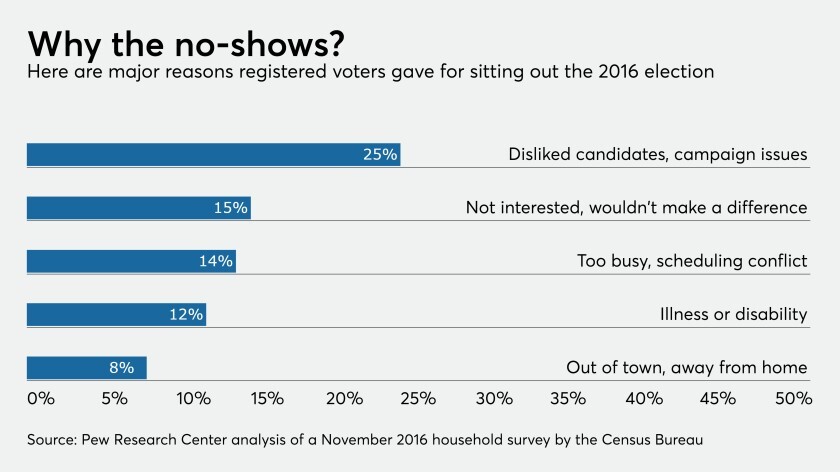Arguably the most highly anticipated presidential election in decades is finally here, and voter enthusiasm is high.
Early turnout in many states has smashed previous records, and Americans have already cast 70% of total votes recorded in the 2016 election, according to data from the U.S. Elections Project. Research from Gallup shows that voters are more excited to cast their ballot this year than in the last several general elections.
The credit union industry has done its part to help with the democratic process. Institutions have given employees paid time off to vote and encouraged voter engagement. Trade associations have donated money and worked to elect candidates they believe will prioritize the industry’s interests.
However, the divisive nature of this year’s campaign has also caused some credit unions to be cautious in anything they say about politics. And the coronavirus has forced some institutions to pull back from serving as polling places.
Read on for highlights from the Credit Union Journal’s election coverage.
Aaron Passman contributed to this report.











